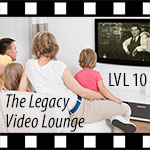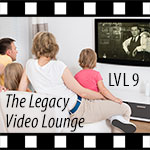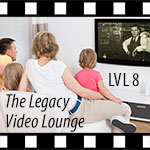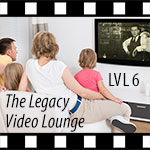Podcast: Play in new window | Download (Duration: 18:10 — 12.6MB)
Subscribe: Apple Podcasts | Email | RSS | More

In this episode, personal historian and video biographer Steve Pender urges you to properly label and organize your family history assets and storyteller recordings so you can find them when you need them. Steve also talks about how he uses interview transcripts to create the editing scripts he uses for the longer documentary-style video biographies Family Legacy Video, Inc. creates for clients. Transcripts, which are text versions of interviews, allow you to scan interviews more efficiently and highlight the portions you’d like to use. Steve also cuts and pastes from transcript files to build the scripts he uses to guide the final video editing. You can create transcripts yourself, hire transcribers to create them, or use an online service like transcribeme.com.

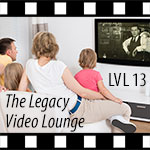
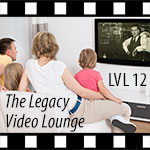
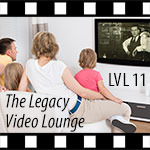
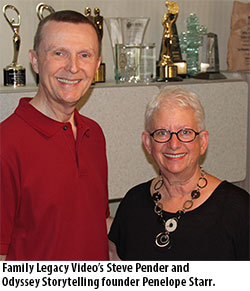 book packed with valuable advice for folks who’d like to start storytelling series in their own towns. In this episode of The Legacy Video Lounge, personal historian and video biographer Steve Pender chats with Penelope about Odyssey Storytelling, the power of sharing personal stories, and her upcoming book.
book packed with valuable advice for folks who’d like to start storytelling series in their own towns. In this episode of The Legacy Video Lounge, personal historian and video biographer Steve Pender chats with Penelope about Odyssey Storytelling, the power of sharing personal stories, and her upcoming book.